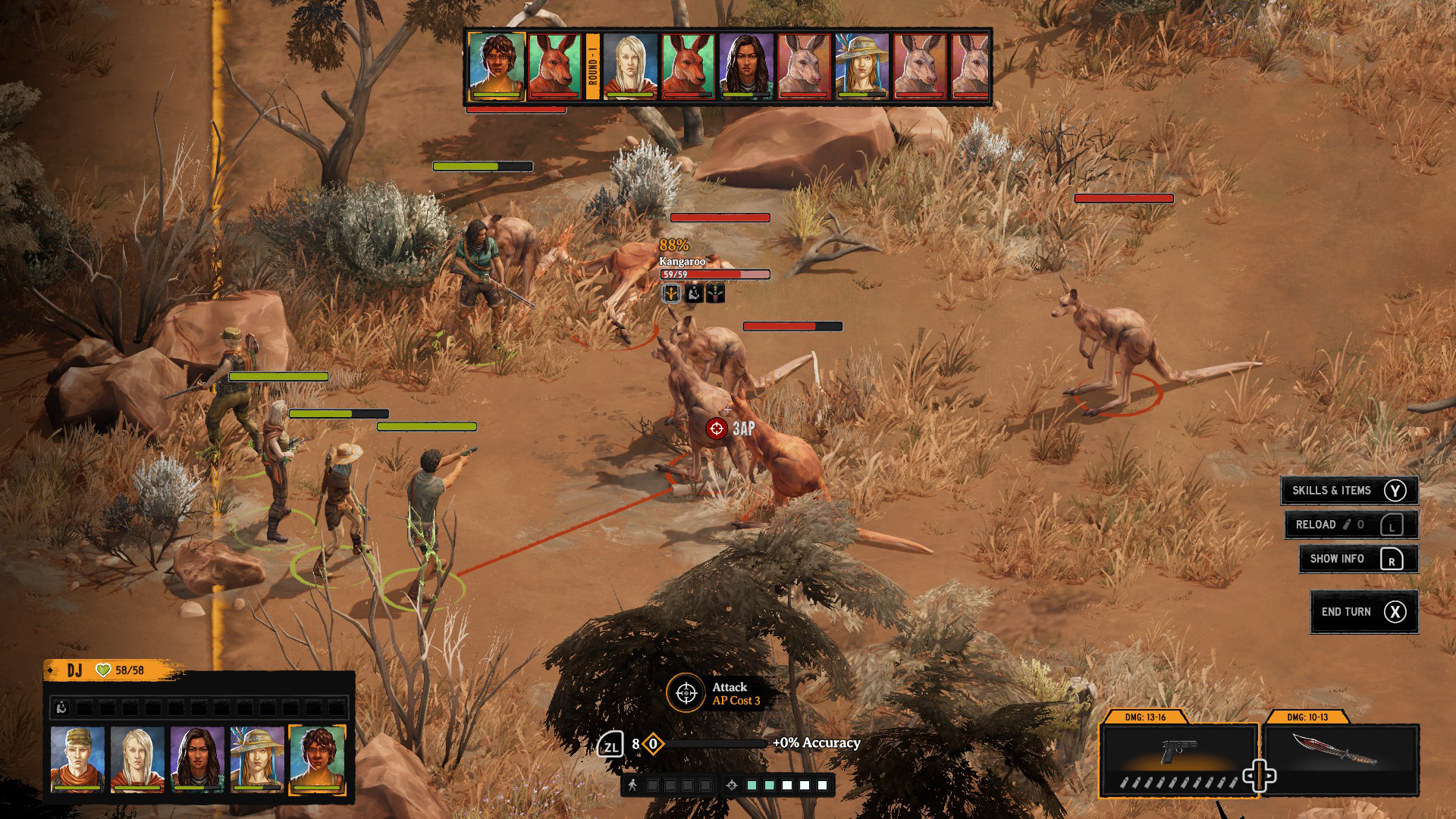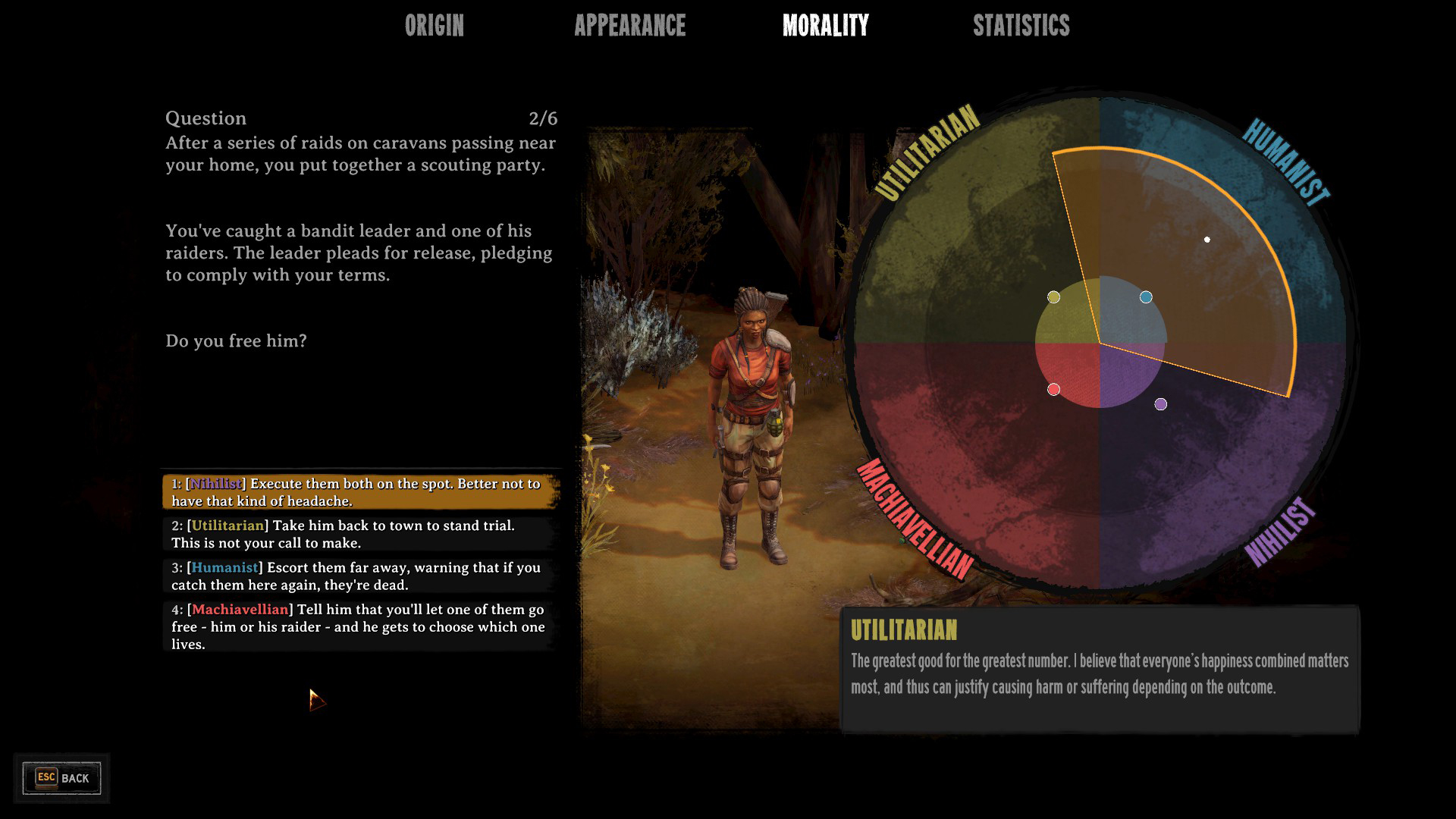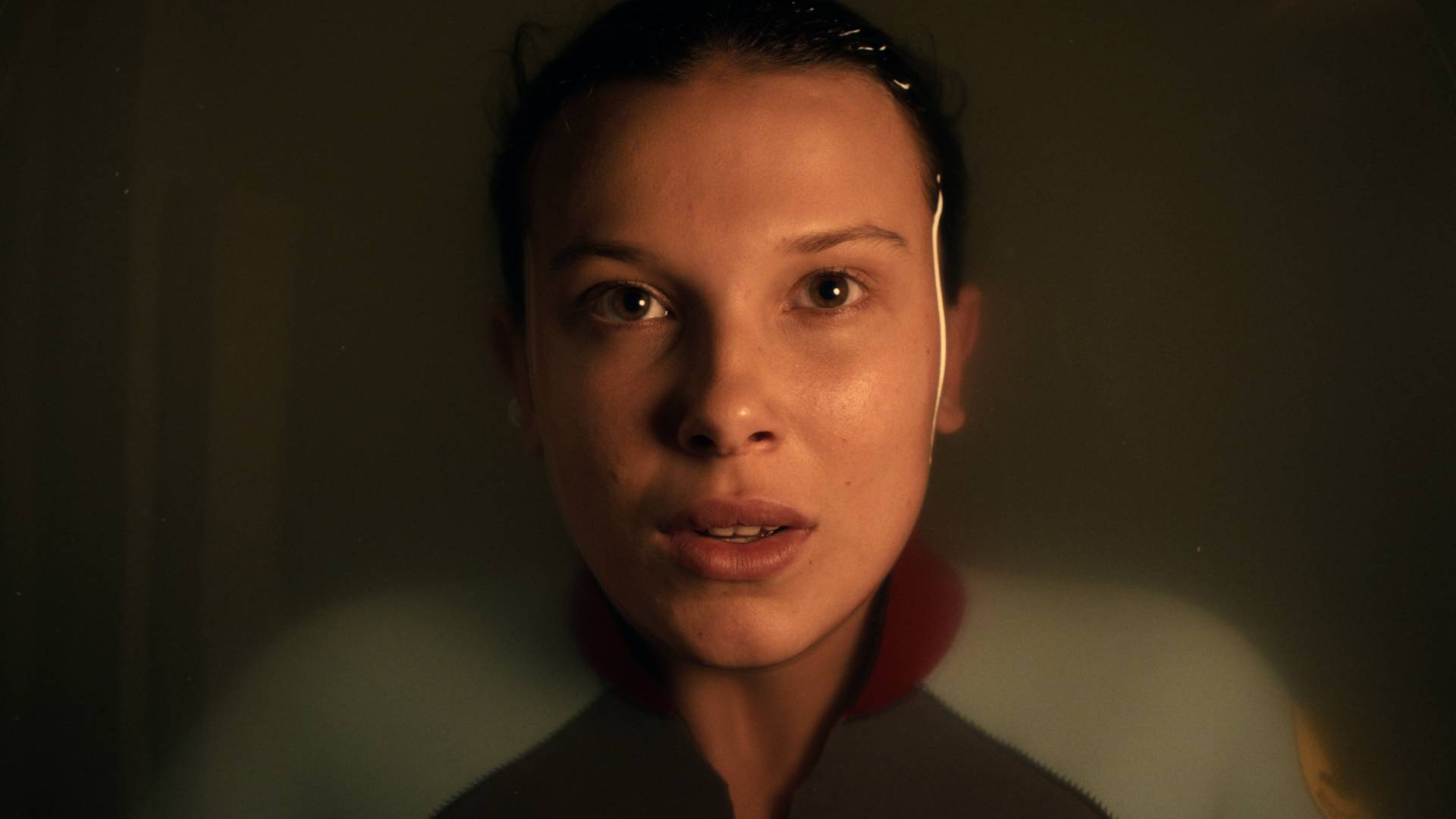GamesRadar+ Verdict
Broken Roads provides a strong draw with its Aussie take on the post-apocalypse and the philosophical strands running through its open-ended role-playing. Rather than leading to an interesting destination, however, these roads really are somewhat broken, with systems that don't feel properly integrated, bizarre leaps of logic and even bugs that lead you into dead ends.
Pros
- +
Australia is a great place for a post-apocalypse
- +
Lots of fascinating ideas to tangle with
Cons
- -
Quests spoiled by bugs and confusing logic
- -
Combat is basic and limited
- -
Many systems feel superficial and underdeveloped
Why you can trust GamesRadar+
Usually in a post-apocalyptic wasteland, the last thing on anyone's mind is philosophy. As basic survival needs take up most waking hours, there's not much time left to ponder the bigger picture. In Broken Roads' version of Australia, though, with 80% of the population dead and a landscape marinated in radiation, starting afresh means figuring out the rules of society all over again. Indeed, with resources so scarce, deciding on effective forms of organization is perhaps more crucial than ever.
Release date: April 10, 2024
Platform(s): PC, PS5, Xbox Series X
Developer: Drop Bear Bytes
Publisher: Versus Evil
In developer Drop Bear Bytes' Antipodean CRPG, then, your ethical standards – or lack of – have as much bearing on your achievements as your prowess with a rifle or spiked bat. Sure, you encounter violent mobs who have little desire to discuss the finer points of Kant's categorical imperative. But as you foray between settlements you find that each has unique systems of law and government, complete with leaders who argue they're doing what's best under the circumstances, and Drop Bear asks you to consider how you rationalize your efforts to help or hinder them.
Sorry States
Your travels begin when the fledgling community you've recently been adopted into is attacked and destroyed, with some of your new friends butchered not long after you meet them. Your aim from there is to find a new home for the survivors and perhaps get a little revenge. A selection of characters is on hand to follow your lead, although they won't necessarily agree with your methods.
You soon stumble into several small outposts and hideouts, as well as larger congregations experimenting with systems such as indentured servitude, back-to-nature spiritualism, and a bastardized version of Plato's theoretical republic. It's fascinating to peel back the layers of these places as you meet the locals and take on tasks to further your cause, finding out who's happy and who isn't, and what kind of risks or moral compromises are being made to keep the place running, some of them quite horrifying.
As for your own ethical leanings and decisions, they're represented by a literal moral compass, divided into quadrants that roughly correspond to four schools of thought – utilitarianism, humanism, Machiavellianism, and nihilism (in simple terms, whether you care about the greater good, people as individuals, yourself, or nothing much at all). If you stick to one of these paths consistently, your worldview narrows, locking off choices that oppose your ideals while unlocking more options and perks that are compatible.
Aussie Rules
Sticking to your philosophical guns isn't easy, however, with your convictions tested as soon as they're exposed to reality. Life is cheap in this patch of western Aus and principles are thin on the ground, and you won't necessarily win favor by being forgiving or idealistic. Sometimes, your best bet is to stay quiet rather than speak at all, while in others a show of force might be the quickest way to a potential ally's heart (apparently it's possible to complete Broken Roads without killing anyone, but good luck with that).
There's no doubt that the down under setting adds an extra layer of intrigue here, and not only because it's a welcome change from the more familiar American post-apocalypse of Fallout and the like. Drop Bear leans into the 'Australianness' of its scenario heavily, not only with a sprinkling of kangaroos and Aussie slang but also a cultural vibe that even in the circumstances remains laidback and stacked with wry sarcasm. Don't expect a pat on the back for a job well done out here, or much in the way of anger in a scrap. Displays of emotion are rarer than clean water, as people take everything in their stride and present compliments in the form of insults.
Weekly digests, tales from the communities you love, and more
True, the script does over-egg the pudding at times, trying a little too hard to emphasize that Aussies love their beer, for instance. But overall, the contrast between the social degradation and this no-nonsense attitude gives Broken Roads unique flavor and its NPCs a hint of soul. It's a contrast that also carries through the game's painterly visuals and mellow soundtrack, both of which bring a beauty to the parched ground and rusty corrugated sheeting. As you criss-cross the territory, you can imagine how the sun-baked journeys might give rise to chatter about what the future may look like, if there is one at all.
Systemic Corruption
While there's plenty in Broken Roads to appreciate and contemplate, though, the further you burrow into its systems and down its plot strands the clearer it becomes that Drop Bear hasn't managed to wrangle them into a coherent whole. One hallmark of quality for a game of this sort is surely that there's always more than one way of achieving your goals, and that is the case here, with multiple relationships and courses of action to explore in quests big and small. Yet whether any of it actually works together or makes sense is another matter entirely.
In terms of activities, many of the mechanics aren't quite developed enough to feel meaningful. If anything, the most complete and enjoyable is the trading system, with various quests keeping you on the lookout for items wherever you go – perhaps a remote merchant is flogging some scavenged junk that an engineer across the map would give their right arm for – and currency is rare enough that each trade is worth the effort. The actual act of traveling, however, is a curiously trivial affair, which hardly does justice to the notion of crossing the outback. Since you can always choose to flee random ambushes, you can zip about this desolate, deadly land as you please.
"Many of the mechanics aren't quite developed enough to feel meaningful"
You might also expect the moral compass to feature more heavily, given how frequently dialogue choices are marked as corresponding to the four main philosophies early on. But by the middle of the game, your options hardly seem to relate to them at all, while perks unlocked by sticking to a worldview barely register. Stranger still is the 'punt' system, which is supposed to allow you to boost your chances in skill check rolls, with the caveat that uses are limited. But in my playthrough I was given the opportunity to use this ability exactly once, so that was no concern.
Combat, meanwhile, is basically fine, with the emphasis on basic, but not without problems. Turn-based skirmishes give each character a pool of action points and movement points, which are usually enough to run up to an opponent and stab them a couple of times or take cover and let off a shot or two. Now and again, you may also deploy a grenade or a healing item, or activate a skill such as overwatch instead. Despite the tried and tested methods, though, and enemies that are very limited in both type and tactics – in many battles gun-wielding foes never move – it's messy and glitchy. The interface could be much cleaner, for starters, and I had one battle end while enemies were still alive, frozen in place as I looted the corpses of their brethren and went about my business.
Logical Fallacy
Sadly, the internal mechanisms of quests are no less afflicted. There are some bafflingly crude cuts between scenes, for instance, where important information seems to go missing, and the sparse animation at times fails to convey who's doing what to whom. The largest non sequitur I encountered, though, came after I completed a quest to fetch medicine for a key NPC who'd been gravely injured. On returning to see how he was doing, I found him hanging dead from the town gallows, and nobody explained what happened or mentioned the poor chap again. Well, that is, until the last scene of the game, where his death was brought up as some kind of moral failing on my part.
This was far from the only lapse in logic either, as I often progressed questlines through guesswork or by talking to anyone vaguely important in the hope that new dialogue options appeared. In some cases, apparently innocuous conversational choices locked me out of a dialogue tree, killing my preferred strategy. In other cases, I had to work around bugs that blocked further advancement down one path – such as failing to register a completed objective – forcing me to find less attractive ways to reach my goal. The icing on the cake arrived with the ultimate big decision you make at the end of Broken Roads – the choice was effectively made for me as the other option failed to trigger the final scene.
For all its efforts to have us consider how societies function, then, the experience of playing Broken Roads turns the examined life into a fruitless endeavor. Instead of testing my preferred brand of ethics, all I could do was go with the flow, taking the path of least resistance, surviving by whatever means I could and adapting to the sudden, confusing changes that came my way. Philosophy barely came into it. Still, you might say that Broken Roads reflects the communities in its world. It shows, as they do, that systems which sound good on paper don't necessarily work as intended, thanks to all the complexities that disrupt the model. A decent philosopher could argue that makes it an accurate depiction of humanity. But a satisfying game? Not so much.
Broken Roads was reviewed on PC, with code provided by the publisher.
More info
| Genre | RPG |
Jon Bailes is a freelance games critic, author and social theorist. After completing a PhD in European Studies, he first wrote about games in his book Ideology and the Virtual City, and has since gone on to write features, reviews, and analysis for Edge, Washington Post, Wired, The Guardian, and many other publications. His gaming tastes were forged by old arcade games such as R-Type and classic JRPGs like Phantasy Star. These days he’s especially interested in games that tell stories in interesting ways, from Dark Souls to Celeste, or anything that offers something a little different.







